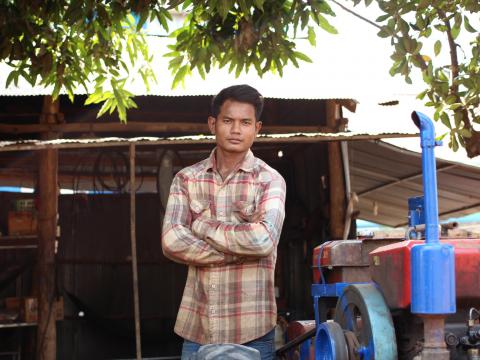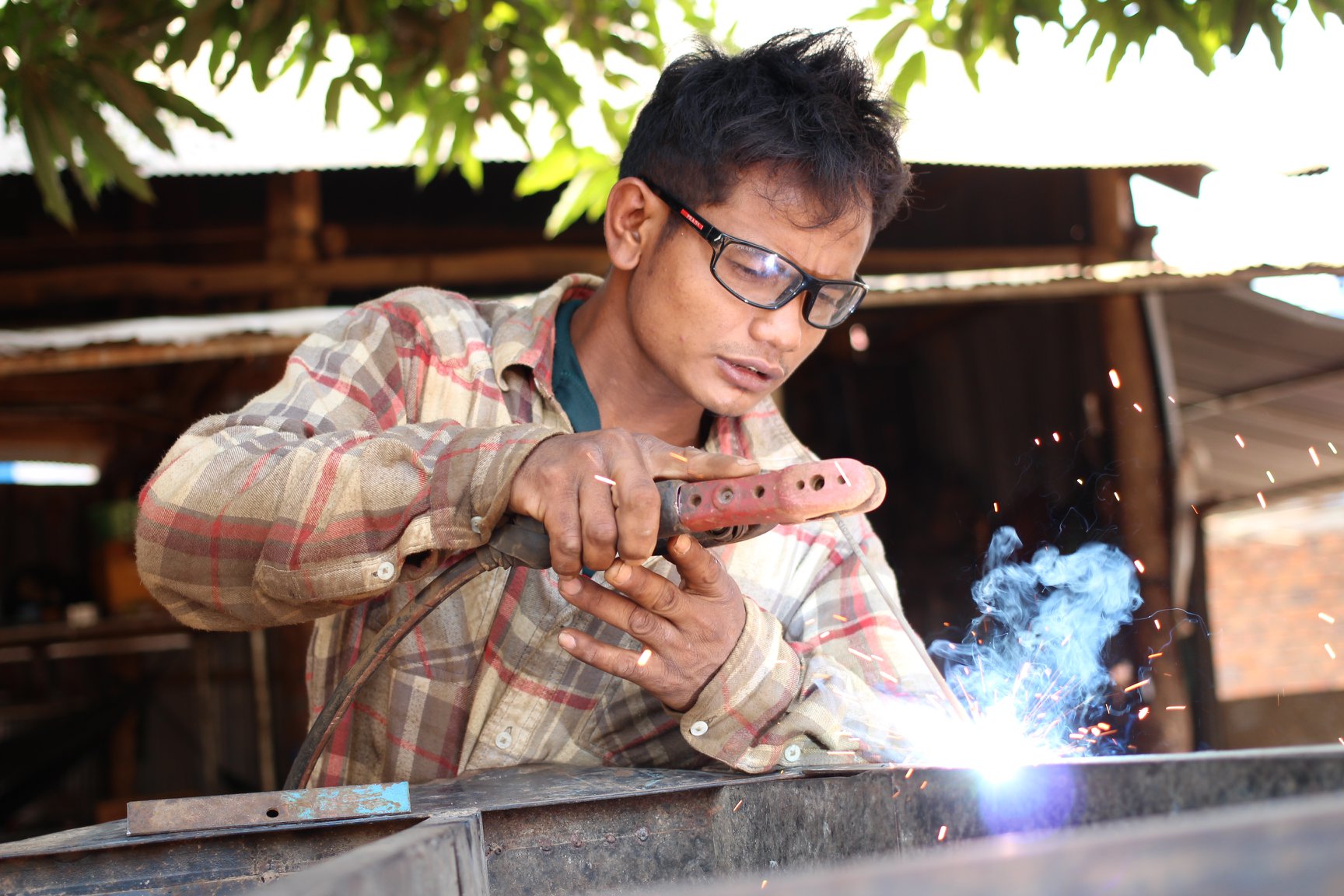Empty Promises Turned Into New Hopes and Dreams

Samnang, 29, lives with a widowed mother and four siblings. They made a living by working on their rice field at Srey Snorm district in Siem Reap Province, Cambodia.
Being the eldest, Samnang had to work harder to support his family. His daily income was not enough to feed everyone well. One day, Samnang was introduced to a new job in neighbouring country Thailand which promised a higher wage, through a friend living in the same village. He eventually travelled to work in Thailand without any legal documentation in 2010 through the Poi Pet border.
Samnang got a job as a construction worker in Bangkok. He spent several months there at a construction site. When he asked about wages, the boss did not pay up and told him to wait 6 to 12 months.
“I thought the broker cheated me, I had no money to return home,” said Samnang. He spent months going from job to job, to get a decent wage in Bangkok.
Illegal brokers introduce people to jobs abroad with a promise of higher pay. Usually, brokers target people they know, such as friends of friends and neighbors. They are great in persuading others by providing early ‘benefits’, including loans to the targets’ families, handling transportation and accommodation expenses, as well as a food allowance during their relocation.
“Later, my friend and I were introduced to another job as fishermen in Indonesia,” said Samnang. Finally, they both were transported there to work on a fishing boat.
I had the intention to run away from the boat several times. But I feared being attacked by crocodiles swimming near the boat.
After 18 months of work, Samnang hoped to save some money. In contrast, the broker deducted his wage without reason, and without any written contract. Without much education, Samnang was easily cheated.
“I illegally migrated to Indonesia because I expected to earn about $363 US dollars per month which could support my family,” said Samnang.
“I got up early at 5 am and took a break for lunch at 11am. I resumed working from 1pm until 5pm, and then from 6pm to 11pm. Sometimes, I was required to fix nets until 3am,” he continued.
The fishing boat docked near land every few months, providing a possible opportunity for workers to escape from the abusive conditions.
“I had the intention to run away from the boat several times. But I feared being attacked by crocodiles swimming near the boat,” Samnang said.
He adds: “My hope was lost. I had no money to support my family. I could not expect to return home.”
One day, Samnang got hold of the phone number of the Cambodian Ambassador in Indonesia. His friend and he were told that they needed to run away and avoid the local police. If caught, they would be sent back to the fishing boat.
World Vision provided Samnang with counselling services to deal with the emotional impact suffered from this horrific experience.
“Luckily, we seized an opportunity the next time the boat docked. I swam with several co-workers and fled to a tempore protection camp[1].” said Samnang.
Through World Vision’s End Trafficking in Persons Programme (ETIP) and the International Labor Organization (ILO), the Indonesian and Cambodian Government supported an initiative against human trafficking, to integrate survivors back into their home communities.
Samnang was repatriated to Cambodia by flight with ILO’s support.
World Vision provided Samnang with counselling services to deal with the emotional impact suffered from this horrific experience. ETIP staff visited him at his village and guided him on the proper way to earn an income.
Through the programme, Samnang received technical skills training on fixing engines. World Vision also contributed an electric engine for him to start his own business.
“I really thank World Vision for supporting me. Now I can earn money for myself and my family in my own country,” he said.
Samnang currently has a small business near his village, earning 40,000 Riels ($10 US dollars) to 60,000 Riels ($15 US dollars) per day. This amount is sufficient to feed his family.
Today, Samnang is financially stable and is making plans to marry his girlfriend.
Through World Vision’s End Trafficking in Persons (ETIP) Phase II project, 22 safe migration campaigns were led by youths and Commune Committees for Women and Children (CCWCs) across three targeted districts in Battambang, Banteay Meanchey and Siem Reap. The project will directly benefit 90 trafficking survivors, by providing reintegration assistance as well as psychosocial support. Meanwhile, through local level training and awareness raising, as well as mobilizing local networks and support to assist victims of trafficking, the project is also expected to reach 89,208 indirect beneficiaries.
[1] The tempore protection camp is where illegal migrants stay and prepare for repatriation. They are protected by the intervention of Non-Governmental Organizations
